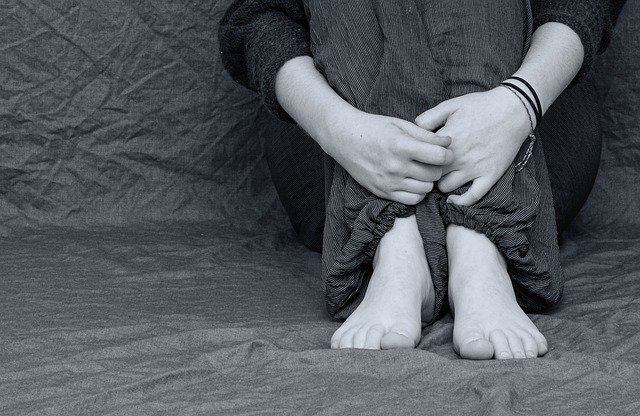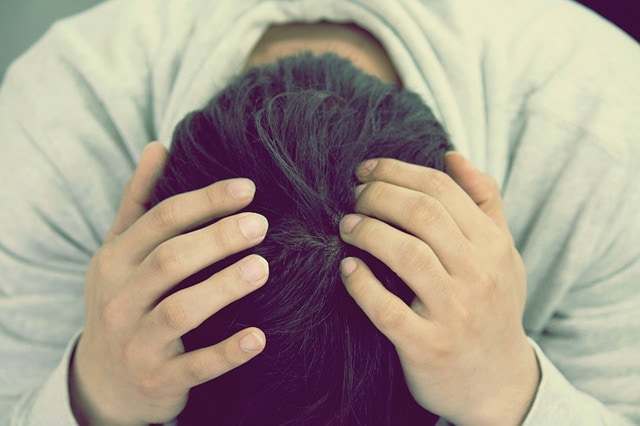Have you ever had a panic attack? In stressful times like these, a panic attack is a natural reaction for many people. Maybe you’ve had one and not known it. Have you felt these symptoms: a racing heart or pounding pulse, knots in your stomach, a feeling of nausea, chest pain, perspiration and a sense of loss of control? The entire episode may have only lasted for a short time but it must have felt like a lifetime. When you think about it later, you’re left with the question: What are panic attacks?
You are not alone. Around 40% of Australians have reported experiencing a panic attack at some point in their lives. While an attack can make you feel like you were dying, panic attacks are normal and can be misunderstood or even confused with other mental and physical disorders. If you know what to expect, you will understand what helps panic attacks and will know exactly what to do if you or someone in front of you has one.
What are panic attacks?
A panic attack is an outburst of overwhelming anxiety which triggers a number of alarming physical symptoms and sensations. These symptoms cause your body to recreate the physical sensation of fear which can worsen the attack. Symptoms include a racing heart, nausea, feeling faint, chest pain, shaking and muscle tension.

A panic attack can occur unexpectedly and come on quite rapidly even without the presence of a stressful trigger. The entire episode is usually short-lived, peaking in a few minutes and subsiding in under an hour. It seems like a short time but panic attacks can be extremely powerful and may leave you feeling emotionally and physically drained for hours.
What are the symptoms of a panic attack?
Because of the range and nature of the symptoms, you may wonder: Did I just have a panic attack? What are panic attacks signs or symptoms?
The worst thing about a panic attack is the sudden and unexpected onslaught. The symptoms of a panic attack appear fast, peak in about ten minutes, and could last up to an hour. A panic episode can leave you feeling mentally and physically drained. You will know if you’re having a panic attack if you experience at least four of these symptoms
- A sensation of numbness or tingling all over the body
- An irrational fear of dying
- A feeling that you are spiraling out of control
- Pain in the chest region
- Profuse sweating
- A queasy and nauseated stomach
- Relentless sense of impending danger
- Dizziness or feeling faint
- Uncontrollable trembling
- Rapidly beating heart
- Unable to breath or feeling as if you are choked
- Depersonalization
- Feeling unusually cold or warm
Not all the symptoms mentioned above are exclusive to panic attacks. Some that are common to panic attacks can also present themselves in other mental and physical health conditions.

Certain medications, drugs and even beverages like alcohol and caffeine can trigger symptoms that feel like panic attacks. What helps panic attacks is to carefully consider the symptoms and understand their underlying causes before jumping to any conclusions.
What are panic attacks and how are they different from anxiety?
While there are overlapping areas between panic attacks and anxiety, there are subtle differences between the two:
Frequency: Anxiety is a feeling that is common because everyone feels anxious at some point or the other. A panic attack is less common and happens only in a subset of the population.
Intensity: Anxiety can be a chronic low-level feeling that is always lurking in the background. On the other hand, panic is an intense feeling of anxiety characterized by severe physical symptoms which feel like crippling fear and can make one feel like they are dying or losing all sense of control. Anxiety may be intense too, but that may mean an anxiety disorder, not regular feelings of anxiety about life, work, or family.
Duration: Anxiety is felt by everyone and may become more intense sometimes, but most people can carry on with regular life. Panic attacks are overwhelming sensations that peak in a few minutes and subside within an hour. They usually prevent one from being able to function.
What are panic attacks caused by?
Your body mounts a fight-or-flight reaction to dangerous situations. Your nervous system floods your body with chemicals to make you focus all your senses on the threat, to make you alert and to prepare your body for physical encounters or emergencies.

A panic attack is primarily caused by the activation of the flight-or-fight response in your body without any real danger being apparent. It might come out of the blue in seemingly stress-free situations. The reasons that trigger this incorrect response are:
- Chronic/ongoing or relentless stress in lifestyle
- A predisposition to reacting negatively and strongly to stress and difficult situations
- Altered brain function
- Genetics
- Acute stress that is short-term but inordinately high
- Intense physical exercise that goes beyond capacity
- Chronic or acute illness
- Excessive intake of coffee, tea and other beverages containing caffeine (a potent stimulant)
- Habitual hyperventilation that alters the balance of blood gases
- A rapid and unexpected change in the surroundings
What are panic attacks – Self-help measures
If you have a tendency for panic attacks, there are some things you can do to avoid recurrence of episodes:
- Exercise daily
- Learn slow breathing techniques that will help prevent activation of the flight-or-fight response
- Try relaxation techniques like mindfulness, meditation and progressive muscle relaxation
- Cut back on stimulants like caffeine, alcohol and cigarettes
- Use positive self-talk in front of a mirror to encourage positive thoughts

While these self-help measures go a long way in dealing with panic attacks, it is always a good idea to seek expert help if needed. Avaana can help you find a counselor online if you would like to consult one.
Medical treatment options
What helps panic attacks is understanding the underlying cause. If the attacks are a result of physical medical conditions, you can seek appropriate treatment for the condition that causes them. This should curb the symptoms and prevent recurrences.
If the origins are mental or emotional in nature, there are some things you can do to reduce or prevent them:
- Lifestyle changes related to sleep, diet and exercise
- Medications
- Counseling and therapy
- Biofeedback therapy
- Stress management and relaxation techniques
- Psychotherapy which includes cognitive behavior therapy
You can start by talking to your medical practitioner, your community health center, or find a psychologist near you.
Self-management
If you frequently face panic attacks, you should consider the following options the next time you find one creeping up on you:
- Remind yourself that while the symptoms are overwhelming they are not fatal, regardless of how you are feel.
- Direct your attention to anything outside the body and away from physical symptoms. Think of your favorite song or the sights all around you.
- Do not attempt to flee from the situation as that only strengthens your symptoms.
- Sit and let the symptoms pass on their own.
- Breathe deeply and slowly to calm your nervous system and prevent hyperventilation.

Is it a one-off or a panic disorder?
Do note that if you have a single panic attack, it does not mean you have a panic disorder. A panic disorder is a condition in which you have frequent panic attacks that deeply and negatively impact the quality of your life. You might have a panic disorder if you have:
- Frequently occurring and unexpected panic attacks that come on without any trigger
- Previously experienced panic attacks
- An underlying constant fear of an impending panic attack
- Modified your behavior as a result of panic attacks
Prognosis and future
Rare and infrequent panic attacks are not considered an emergency and usually get better over time. For this reason they are not a cause of concern and will not affect your life or health in any way.
However, if you have recurring attacks you may have a panic disorder. This can drain you in the long run, both mentally and physically. Memories of the debilitating fear and anxiety experienced repeatedly can take a toll on your self-confidence and disrupt your everyday life. In the long run, it can lead to the following:
Anticipatory anxiety
If you are fearful of fear or constantly anxious about an impending panic attack. It can severely impact the quality of your life and leave you perpetually jittery and on the edge.
Phobic avoidance
This is marked by avoidance of specific situations or places because of the mistaken belief that they will trigger an attack. This form of social avoidance can also extend to steering clear of situations which are difficult to deal with or where you will not be able to seek help
If you have had infrequent and rare panic attacks then that is not a cause for long-term concern. However, if they occur repeatedly then you should seek medical consultation and treatment.
In the absence of treatment, these attacks can severely hamper your daily functioning. While a single episode can be managed, it is advisable to never self-diagnose or treat your own panic disorder.



